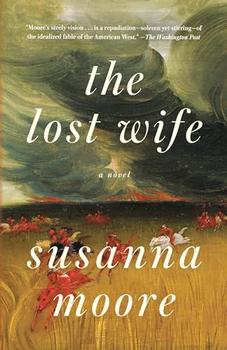Page 1 of 1
There are currently 3 reader reviews for The Lost Wife
Write your own review!
BuffaloGirlKS
Spare and Unflinching
An excellent fictional account of the Great Sioux Uprising in Minnesota told through a character based on the memoirs of an actual female captive. The author conveys the US government's responsibility for the uprising from its failure to fulfill its treaty terms as well as its disastrous after effects for the Sioux. Although spare in language and short in length, this book left me thinking about it for days afterward.
Kartik
An Unforgettable Tale of Love, Loss, and Rediscovery
The Lost Wife" is a deeply moving and beautifully written novel that takes readers on an unforgettable journey through the tumultuous years of World War II. Alyson Richman's poignant narrative follows the lives of Lenka and Josef, two lovers separated by war and fate.
Richman's evocative prose and attention to detail transport us to the vibrant streets of pre-war Prague and the harrowing confines of a concentration camp. Through her vivid descriptions, we witness the depth of Lenka and Josef's love and their unwavering determination to find each other amidst unimaginable circumstances.
Pragya
'the lost wife'-review
"The Lost Wife" by Susanna Moore is a captivating historical fiction novel that delves into the tumultuous events of World War II and its aftermath. While the book possesses several compelling elements, it falls short in certain areas, hindering its potential to be an outstanding work of literature.
One of the book's strongest aspects is its meticulous attention to detail in depicting the historical backdrop of Nazi-occupied Prague and the subsequent Holocaust. Moore's research is evident throughout the narrative, bringing the setting to life and providing a vivid portrayal of the horrors faced by the Jewish community during that time. The emotional weight and moral dilemmas faced by the characters add depth to the story, as they grapple with love, loss, and survival.
The writing style employed by Susanna Moore is elegant and evocative, painting a vivid picture of the characters and their surroundings. The prose is rich and descriptive, effectively transporting readers to the streets of Prague and immersing them in the emotional turmoil experienced by the protagonists. Moore's ability to create a sense of time and place is commendable and enhances the overall reading experience.
However, where "The Lost Wife" falls short is in its character development and pacing. While the historical context is expertly depicted, the characters themselves lack the same level of depth. The protagonists, Josef and Lenka, feel somewhat one-dimensional, and their development is overshadowed by the larger historical events unfolding around them. This creates a sense of detachment from the characters, making it difficult to fully invest in their stories and empathize with their struggles.
The pacing of the novel also poses a challenge. The narrative jumps back and forth between the past and the present, alternating between Lenka's experiences during the war and her life in contemporary America. While this structure aims to create suspense and build anticipation, it often feels disjointed and disrupts the flow of the story. The constant shifts in time can be disorienting and make it challenging to fully engage with either timeline.
Despite its flaws, "The Lost Wife" remains a worthwhile read for those interested in historical fiction, particularly the World War II era. The author's dedication to research and her ability to vividly capture the horrors of that period are commendable. However, the book's shortcomings in character development and pacing prevent it from achieving its full potential. While it may not stand out among other notable works in the genre, it still offers a poignant glimpse into a dark chapter of history.
